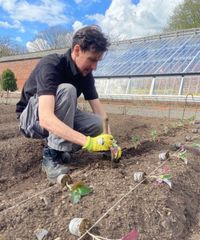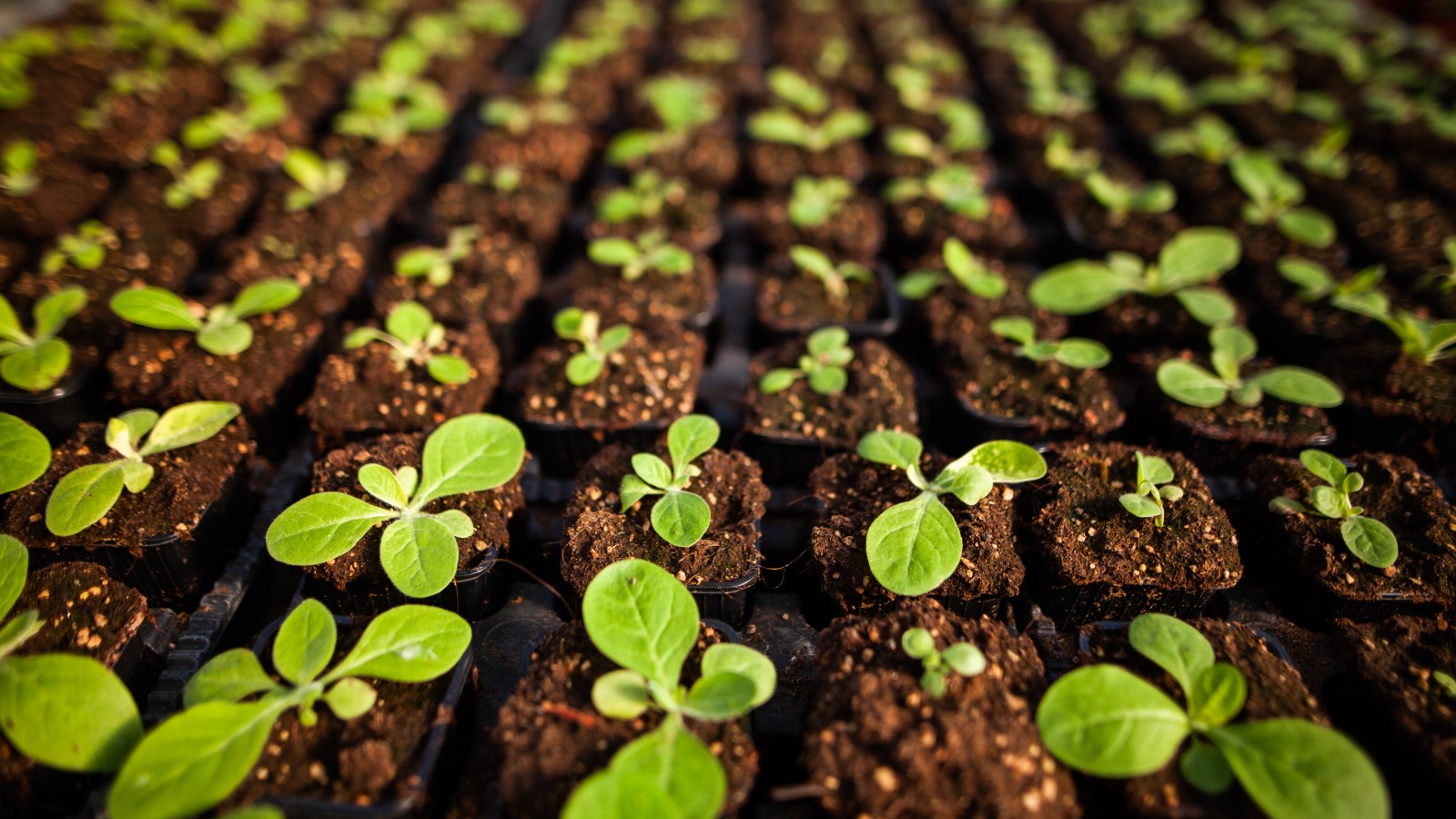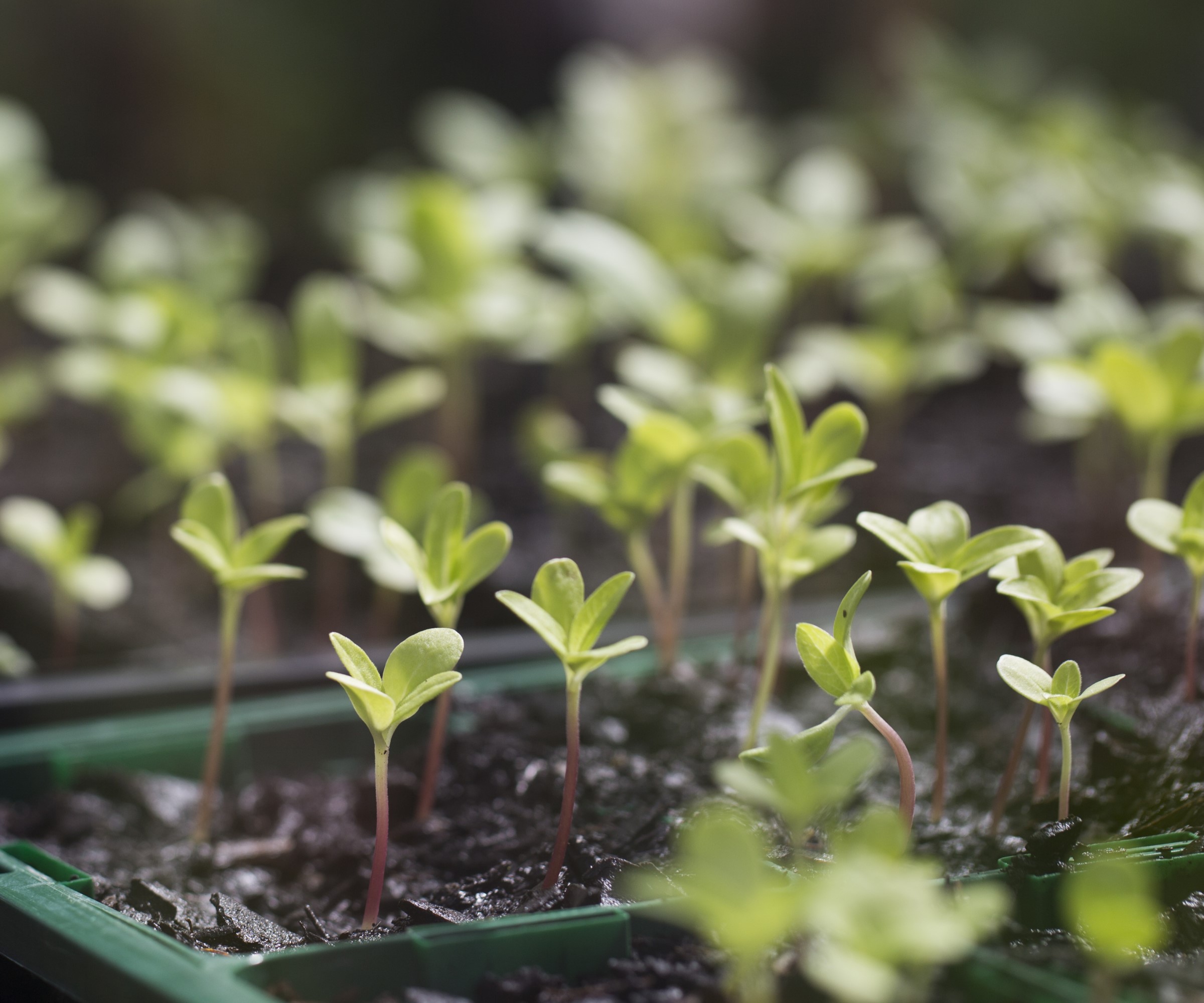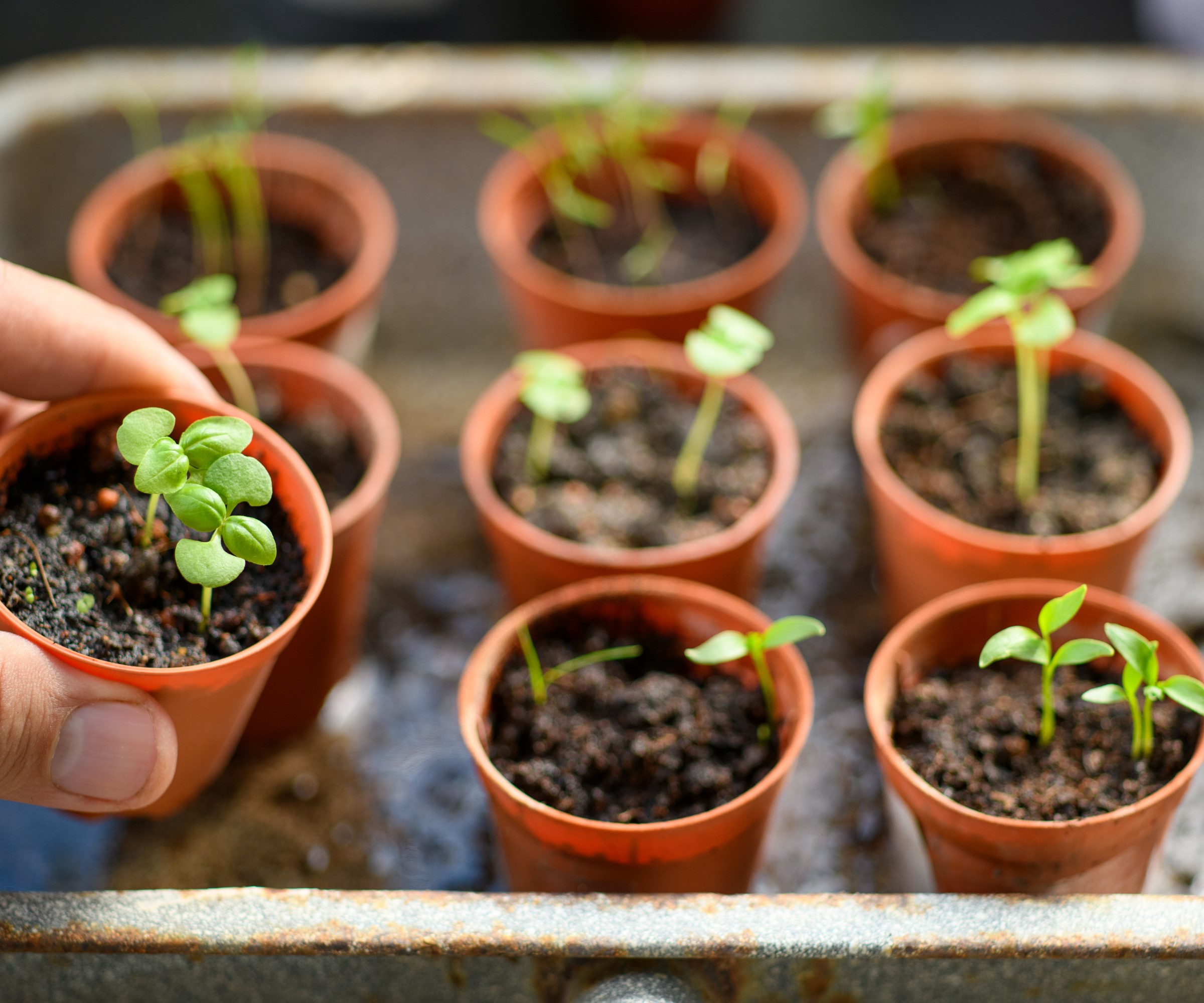When to fertilize seedlings – to encourage strong and healthy growth
Getting the timing right is key to ensure you have strong and healthy-growing seedlings ready to plant out in your yard


Design expertise in your inbox – from inspiring decorating ideas and beautiful celebrity homes to practical gardening advice and shopping round-ups.
You are now subscribed
Your newsletter sign-up was successful
Want to add more newsletters?

Twice a week
Homes&Gardens
The ultimate interior design resource from the world's leading experts - discover inspiring decorating ideas, color scheming know-how, garden inspiration and shopping expertise.

Once a week
In The Loop from Next In Design
Members of the Next in Design Circle will receive In the Loop, our weekly email filled with trade news, names to know and spotlight moments. Together we’re building a brighter design future.

Twice a week
Cucina
Whether you’re passionate about hosting exquisite dinners, experimenting with culinary trends, or perfecting your kitchen's design with timeless elegance and innovative functionality, this newsletter is here to inspire
Growing plants from seed is a highly rewarding and budget-friendly way to grow a whole host of plants for your backyard. A seed itself contains all the food it needs to germinate. Seedlings will, however, need a boost of nutrients to help them, so when is the right time to fertilize them?
To grow strong and healthy plants from seed, whether they are flowers, vegetables, or shrubs, it is important to understand a plant fertilizer label and appreciate when the best time is to apply feed to seedlings. It can be a fine art, as you can harm your plants if you feed too early or over-fertilize.
During my time as a professional gardener I grew a high number of plants annually. In one role I led a propagation regime to grow plants for three historic gardens and, as a specialist kitchen gardener, I grew a high number of edibles year-on-year. I was probably responsible for growing thousands of plants from seed each year – thankfully I was ably assisted.

Do not fertilize seedlings before they have their first true leaves

Drew is a former professional gardener who worked in several historic gardens in the UK. He has organized and led on large-scale annual propagation regimes, growing large numbers of both ornamental and edible plants from seed
Expert tips on when to fertilize seedlings
If you are sowing your plants from seed, then choosing the best soil to start seeds in is key. The best choice is specialist seed compost and this is because, as Ruth Hayes, Gardening Editor for Amateur Gardening, says: ‘There is enough nutrients in seed compost to start seedlings without needing extra fertilizer.’ Seeds do not need the additional nutrients or feed to germinate that other composts, including multipurpose compost and homemade compost, often contain.
Seeds contain all the power they need to germinate and the smallest seedlings can survive merely off the stored food in the seed. The seedling relies on that source until it has its first true leaves and starts the process of photosynthesis. Seedlings do not need any fertilizer during that early stage of their growth and applying feed too early can actively harm them.
The earliest seedlings can be given fertilizer is when they have their first set of true leaves and hit around two inches tall. However, when I was running propagation regimes and growing lots of plants from seed annually, I always added fertilizer when the plants were being pricked out of their seed trays, or potted up into larger modules. They tended to be pricked out when they had at least their second set of true leaves and were large enough to handle. This normally was around three or four weeks after sowing.

Potting on offers a great time to fertilize seedlings
What fertilizer to use on seedlings
If you are adding fertilizer at the earliest possible opportunity, after their first set of true leaves, then it is usually given in the form of a water-soluble fertilizer that is diluted down to around a quarter-to-a-half of the recommended strength.
Design expertise in your inbox – from inspiring decorating ideas and beautiful celebrity homes to practical gardening advice and shopping round-ups.
When adding fertilizer during the pricking out stage, I preferred a slow-release fertilizer that was mixed in with the potting compost. If you are planning to add fertilizer at this stage, always make sure there is no fertilizer already added to any potting compost you may have bought from a garden center or online. Too much feed at this point could harm the seedling.
Seedlings want a fertilizer that is high in phosphorus, which is the nutrient that is responsible for strong root growth and helps with photosynthesis. Immature plants need more phosphorus than older ones and the nutrient is important when it comes to ensuring young plants are healthy. At this stage of the seedling’s life, nitrogen is also very important. It is best to opt for a balanced fertilizer or one with a higher ratio of nitrogen and phosphorus.
You can use either liquid or granular fertilizers to feed seedlings, but never apply fertilizer at a rate higher than recommended on the container. When using a liquid feed, it is advised to never apply it to seedlings at full-strength - always dilute it down. An example of a liquid fertilizer is the FoxFarm Liquid Plant Food available at Walmart.
Granular fertilizers take longer to break down and therefore do not have the nutrients available to the plants as instantly as liquid ones. However, many are slow-release and will only require one application until the plant is large enough to be planted out in the yard in a flower bed, vegetable garden, or as part of a container garden. Try to ensure that no granules touch the stems or roots of the plant, as it could burn the plant’s tissue. An example of a slow-release granular fertilizer is the Miracle-Gro Shake 'n Feed All Purpose Plant Food available at Amazon.
You can over-fertilize plants and seedlings and too much fertilizer can cause unwanted straggly and unhealthy growth, or ultimately result in a salt build-up around the plant’s roots - which can cause the plant to shrivel up and die.
FAQs
Do seeds germinate faster if fertilizer is applied?
No, seeds do not germinate faster with fertilizer than without. The seeds do not actually need fertilizer for the first few weeks of their life. It would be a seed sowing mistake to feed too early as germination can actually be hindered if there is too much fertilizer in the soil. It is always recommended to hold off applying fertilizer until the seedlings have developed their true leaves.

Drew has worked as a writer since 2008 and was also a professional gardener for many years. As a trained horticulturist, he worked in prestigious historic gardens, including Hanbury Hall and the world-famous Hidcote Manor Garden. He also spent time as a specialist kitchen gardener at Soho Farmhouse and Netherby Hall, where he grew vegetables, fruit, herbs, and cut flowers for restaurants. Drew has written for numerous print and online publications and is an allotment holder and garden blogger. He is shortlisted for the Digital Gardening Writer of the Year at the 2025 Garden Media Guild Awards.